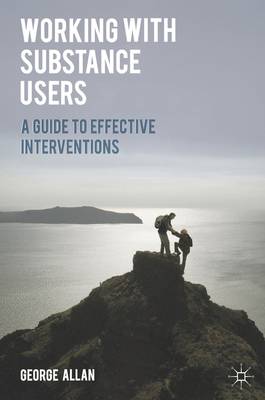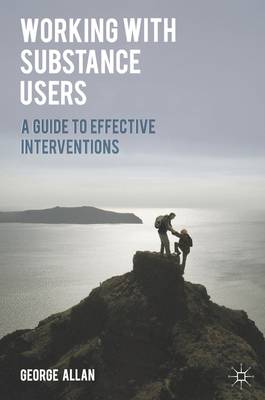
En raison d'une grêve chez bpost, votre commande pourrait être retardée. Vous avez besoin d’un livre rapidement ? Nos magasins vous accueillent à bras ouverts !
- Retrait gratuit dans votre magasin Club
- 7.000.000 titres dans notre catalogue
- Payer en toute sécurité
- Toujours un magasin près de chez vous
En raison de la grêve chez bpost, votre commande pourrait être retardée. Vous avez besoin d’un livre rapidement ? Nos magasins vous accueillent à bras ouverts !
- Retrait gratuit dans votre magasin Club
- 7.000.0000 titres dans notre catalogue
- Payer en toute sécurité
- Toujours un magasin près de chez vous
53,45 €
+ 106 points
Description
Social care and health professionals encounter people with drug and alcohol problems on a daily basis, but many feel ill-equipped to respond. Although people working across different professions will approach substance users from various perspectives, the knowledge and skills needed to intervene effectively are the same for all.
With a strong emphasis on the core skills needed for practice, this up-to-date and accessible text provides a complete guide to working with substance users and their relatives. It covers the nature of problematic use and introduces theories as to why people experience substance problems and why people change. The book moves on to examine a number of effective interventions and how they can be applied, including assessment and care planning, pharmacological treatments and cognitive behavioural therapy. Distinctively, in addition to chapters on working with specific groups such as adolescents and involuntary service users, it also addresses the implications of parental problems for children and explores ways of helping adults affected by a relative's substance use. Supported throughout by case examples and activities to help apply theories and concepts to practice, this comprehensive text equips readers with the knowledge and skills needed to work with substance users.Spécifications
Parties prenantes
- Auteur(s) :
- Editeur:
Contenu
- Nombre de pages :
- 285
- Langue:
- Anglais
Caractéristiques
- EAN:
- 9781137278043
- Date de parution :
- 01-05-14
- Format:
- Livre broché
- Format numérique:
- Trade paperback (VS)
- Dimensions :
- 155 mm x 231 mm
- Poids :
- 453 g

Les avis
Nous publions uniquement les avis qui respectent les conditions requises. Consultez nos conditions pour les avis.






